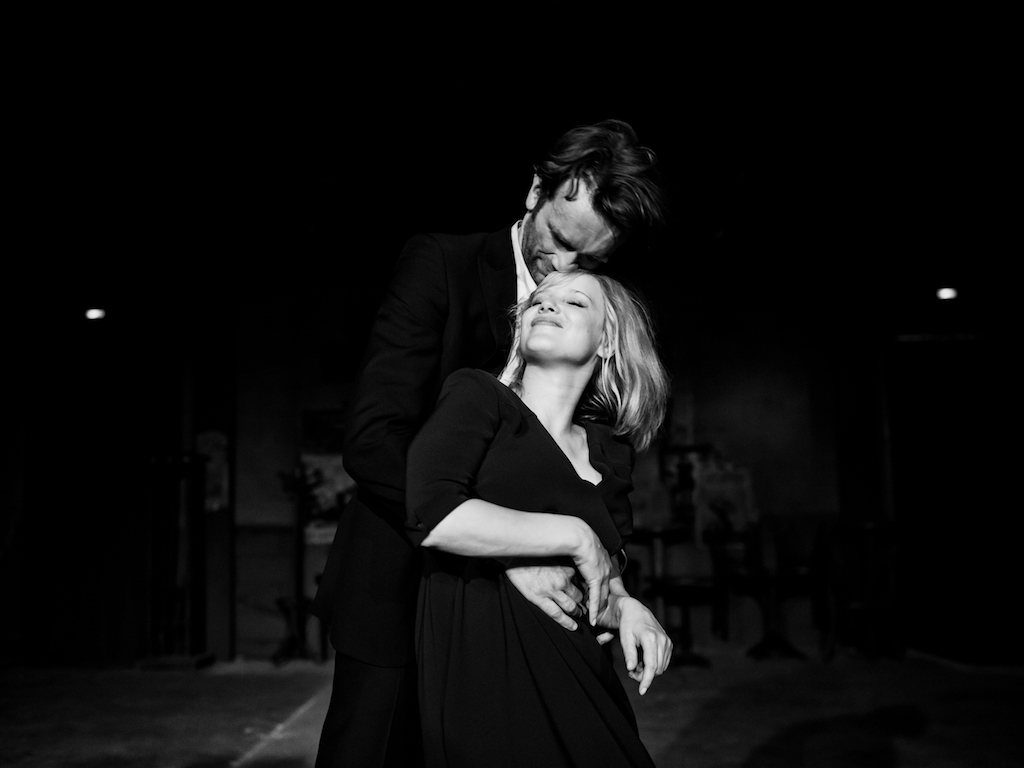
The Oscar nominated Polish film Cold War is undeniably cool. Stunningly shot in black and white, it has beautiful, disaffected leads who lean against walls and smoke hand-rolled cigarettes and perform in Parisian jazz clubs, often backlit by neon signs. But it can also be cool in that other sense—as in remote, inscrutable, emotionally detached.
The unfortunate thing about this sense of detachment is that the film is a love story—and not just any old love story, but a sweeping, decades-spanning romance that is meant to be imbued with unbridled passion. We are supposed to believe that musician Wiktor (Tomasz Kot) and chanteuse Zula (Joanna Kulig) are madly in love—that they are each other’s one and only. But I confess I never got fully invested in their relationship. This is partly because they don’t say much to each other—they either have sex or gaze at each other from across rooms or bemoan the fact that they can’t be together. When they do talk, they often argue. The film’s (admittedly interesting) structure is also a hindrance to that emotional connection: Director Pawel Pawlikowski presents the film in brief chapters, jumping ahead in time, often by several years.
When we first meet Wiktor and Zula, it’s 1949 and we’re in the countryside of Poland, where Wiktor has received some sort of state grant to finance a passion project: taking the indigenous folk music of the villages of Poland and bringing it to large stages. Zula has auditioned to be one of the singers and dancers in Wiktor’s troupe and he is immediately mesmerized by her. She is a woman of mystery, with something of a dark past and, because of that, her place in the ensemble is somewhat precarious. Eventually, the two succumb to all those smoldering gazes and commence a secret romance. But everything changes when the officials funding Wiktor’s pet project insist he start playing patriotic music extoling Joseph Stalin and the Communist Party. He decides to defect to Paris and implores Zula to go with him.
If Zula did, in fact, go with him, we wouldn’t have much of a movie. Instead, there are various misunderstandings and missed connections and the two remain apart. She stays in Poland while he develops a career as a composer and jazz musician in France. Over the years, they meet, have sex, argue. They commence other relationships, but never with great passion. Zula, however, can be quite jealous.
Cold War is meant to have a touch of The Gift of the Magi. The two lovers make sacrifices for each other, but often with unintended consequences. It’s a tragedy about the oppressiveness of the Soviet government, how it stifled creativity and humanity and, ultimately, love. It’s gorgeous to look at and, honestly, quite compelling from beginning to end. I just wish I felt more of the love.
